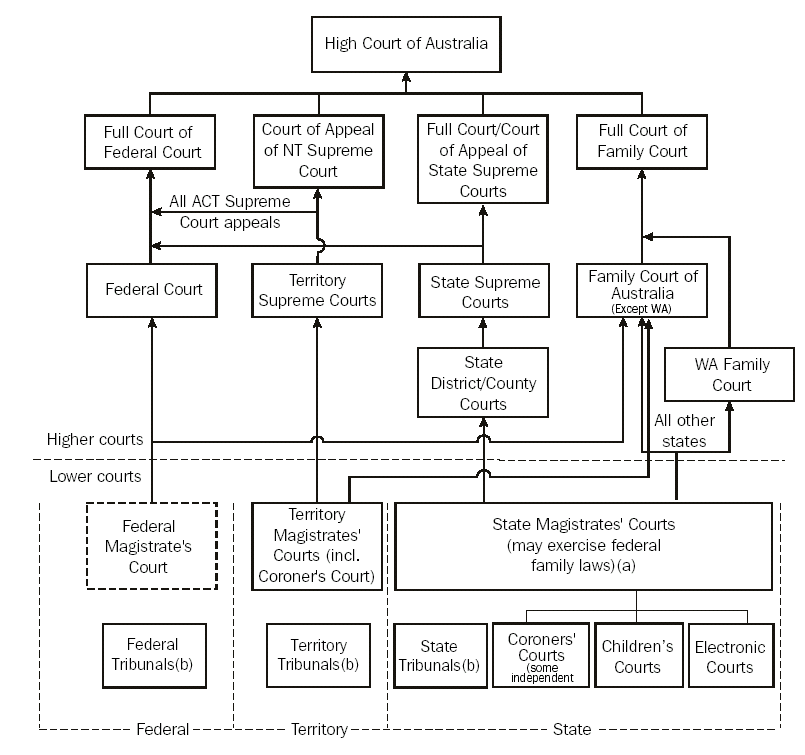Many courts and court-related tribunals operate throughout Australia. The majority of courts handle matters that are criminal or civil in nature, while tribunals provide a less costly alternative for progressing some civil and administrative matters outside the formality of a court. A criminal matter generally arises where a charge has been laid either by police or some other prosecuting authority on the basis of a breach of criminal law. A civil matter occurs where there is a dispute between two or more individuals or organisations, where one party seeks legal remedy for an injury or loss from the other party who is alleged to be liable.
There are many other types of courts and tribunals in operation, commonly referred to as specialist courts and tribunals, that have been created because the courts were not the best way to address certain types of matters. Examples of these courts include the Coroners' Courts, Family Court, Federal Magistrates' Court, Drug Courts, Workers' Compensation Commissions/Tribunals, Industrial Relations Commission, Small Claims Tribunals, Administrative Appeals Tribunal and Residential Tenancy Tribunal.
Courts and tribunals tend to be arranged in a hierarchy (diagram 11.17), with the majority of less serious matters being heard before magistrates and more serious matters being heard before judges. For criminal matters the seriousness is often determined by the nature of the alleged offence. In a civil context, seriousness is generally determined according to the amount being sought in compensation. A court's or tribunal's ability to deal with either a civil, criminal or other matter will depend on the legislation or jurisdiction applicable to that particular level of court.
The hierarchy of courts also applies to appeal matters. Where grounds for appeals exist, the appeal process is available in both criminal and civil matters. Appeals resulting from civil tribunal decisions may be referred to the Magistrates', District, Supreme or Commonwealth Courts, depending on the jurisdiction and the right of appeals. Criminal appeals resulting from the Magistrates' Court can be appealed at either the District, Supreme or Commonwealth Court level in the first instance. The High Court of Australia is the highest court of appeal for both criminal and civil cases.
The following section focuses on the criminal jurisdiction of higher courts.
11.17 HIERARCHY OF COURTS

 |  |
| Arrows indicate the flow of cases on appeal. |
| Indicates a separation between state/territory or court jurisdiction. |
(a) Appeals from lower courts in NSW go directly to the Court of Appeal in the NSW Supreme Court.
(b) Appeals from federal, state and territory tribunals may go to any higher court in their jurisdiction.
Source: Steering Committee for the Review of Commonwealth/State Service Provision, 'Report on Government Services 2002'.
 Print Page
Print Page